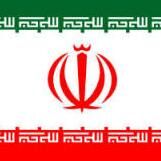
Iran Tests Arsenal; Israel Within Range
Iran launched dozens of missiles, including the Shahab-3, which can reach Israel, during military maneuvers on November 2. Though the world’s leading powers have reacted with indifference, the tests should cause concern, especially in light of Iran’s determination to maintain its nuclear program.
“The first and main goal of this exercise is to demonstrate power and national determination to defend the country against any possible threat, and show Iran’s missile capability which has increased the country’s defense capability,” Iranian news agency isna reported.
In Israel, Infrastructure Minister Binyamin Ben-Eliezer said that the missile tests, though unsurprising, proved that leaving Iran unchecked would pose a risk to the world. “Iran is following a direct line after North Korea. Therefore this problem is not Israel’s but that of the entire world,” Ben-Eliezer said, referring to North Korea’s recent nuclear test which was preceded by frequent test-firings of long-range missiles.
The Sahab-3 missile, which can carry a nuclear payload, is widely believed to be based on the design of missiles Iran purchased from North Korea. Though Iran claims its nuclear program is for peaceful purposes, the United States and other Western powers believe it seeks to create a nuclear weapons arsenal.
Iran denies any intention of using the missiles to attack other countries, labeling the exercise as defensive. These statements, however, lose credibility when you compare them to Iranian President Mahmoud Ahmadinejad’s calls for wiping Israel off the map.
The missile tests “should bother not only Israel. It should bother the Arab countries, Islamic countries, the Gulf region, North Africa and Europe,” Ben-Eliezer said. “We are always warning the world about this phenomenon called Iran.”
Iran has already followed North Korea’s footsteps in weapons development, using the same designs and technology as North Korea. Might it also join the nuclear club as North Korea did?
Yet the world is not alarmed enough. The United Nations can’t even agree to impose sanctions on Iran (something it managed to do to North Korea), because Russia and China continue to support Iran’s nuclear program. The U.S. isn’t in a position to act, largely because its government—and people—is bitterly divided over its policy.
However, Bible prophecy shows that one power will finally stand up to Iran’s aggressiveness. To learn which nations will comprise that power, read “The Ostrich, the Warrior and the Whirlwind.”
